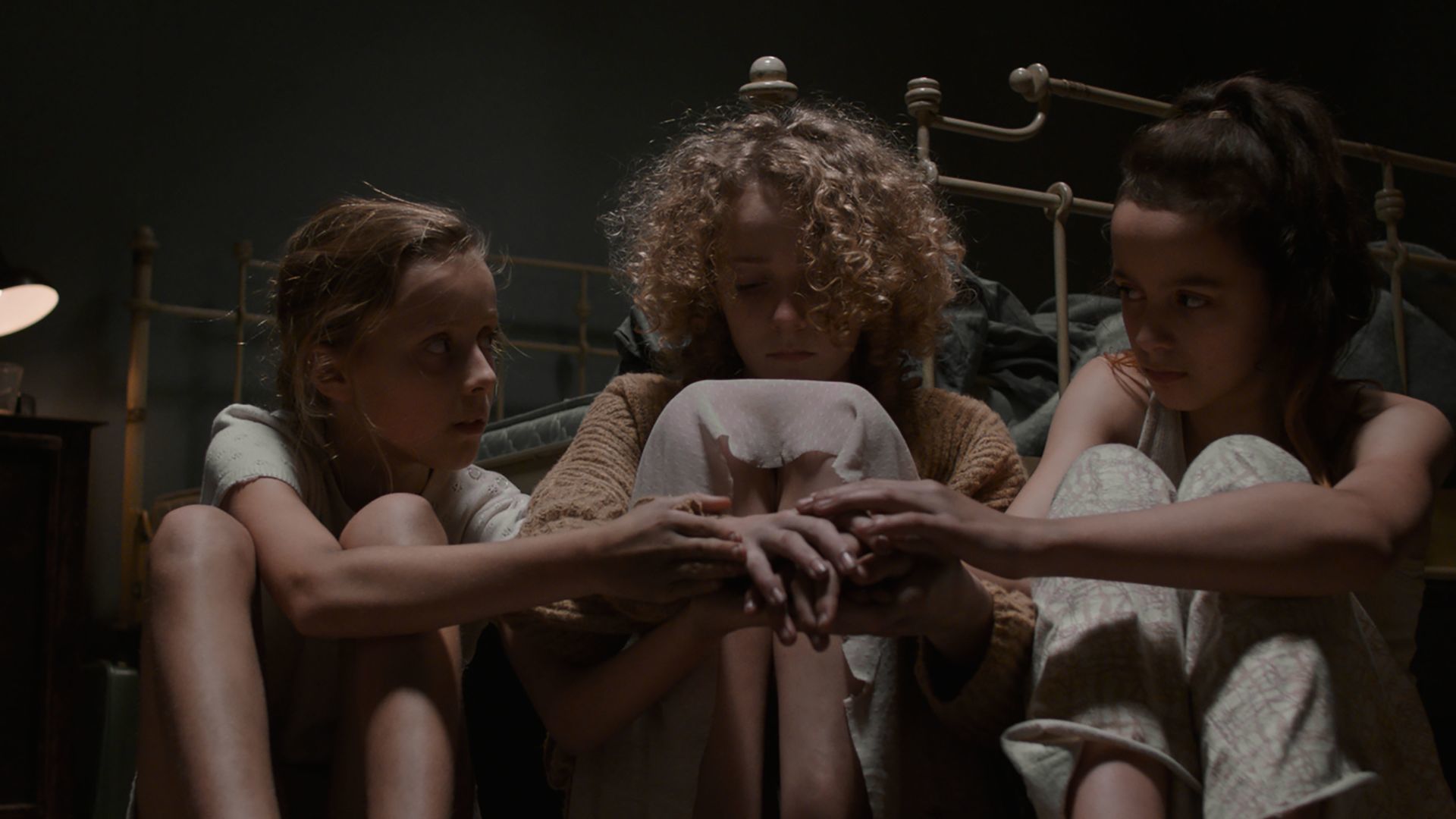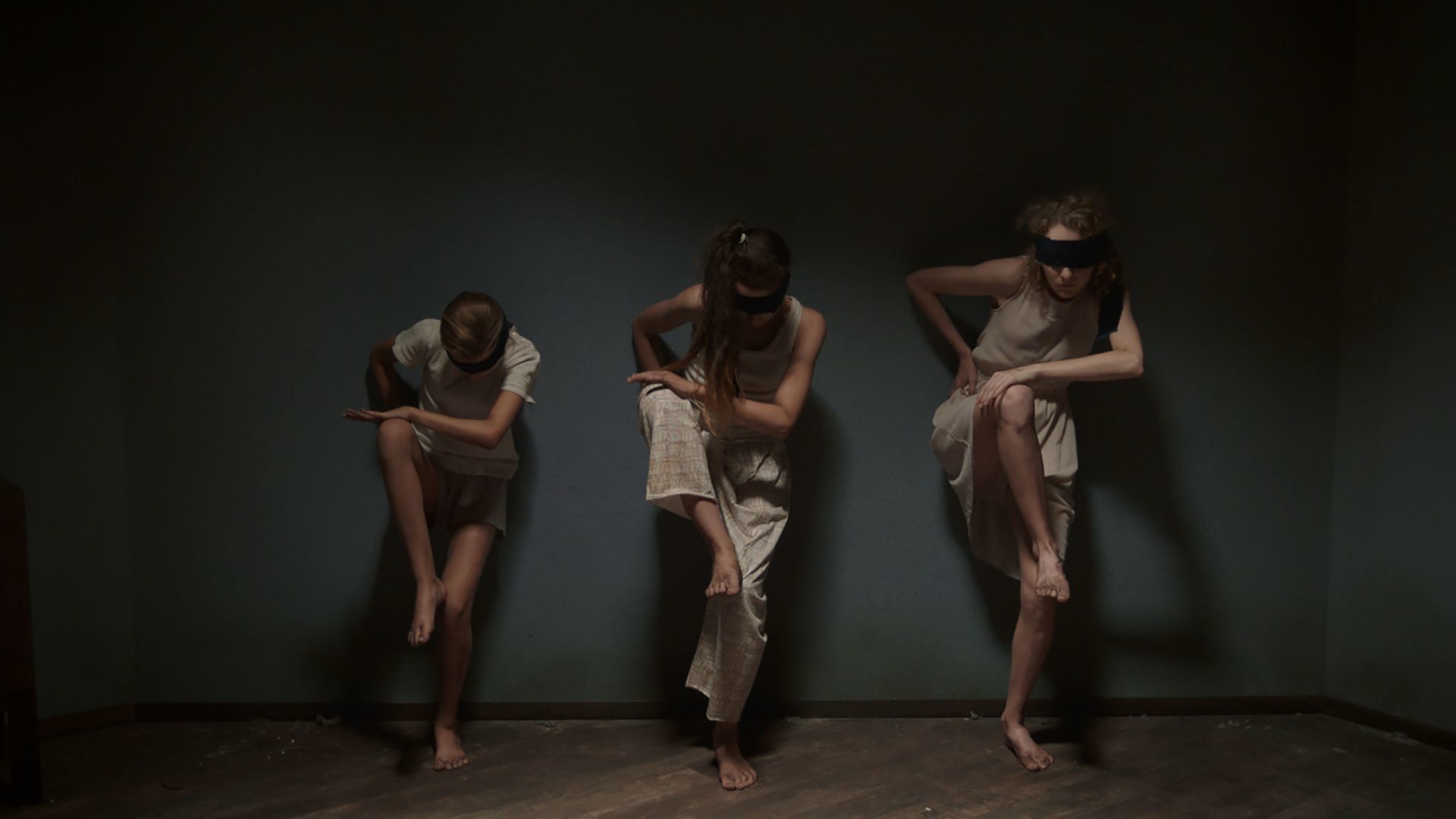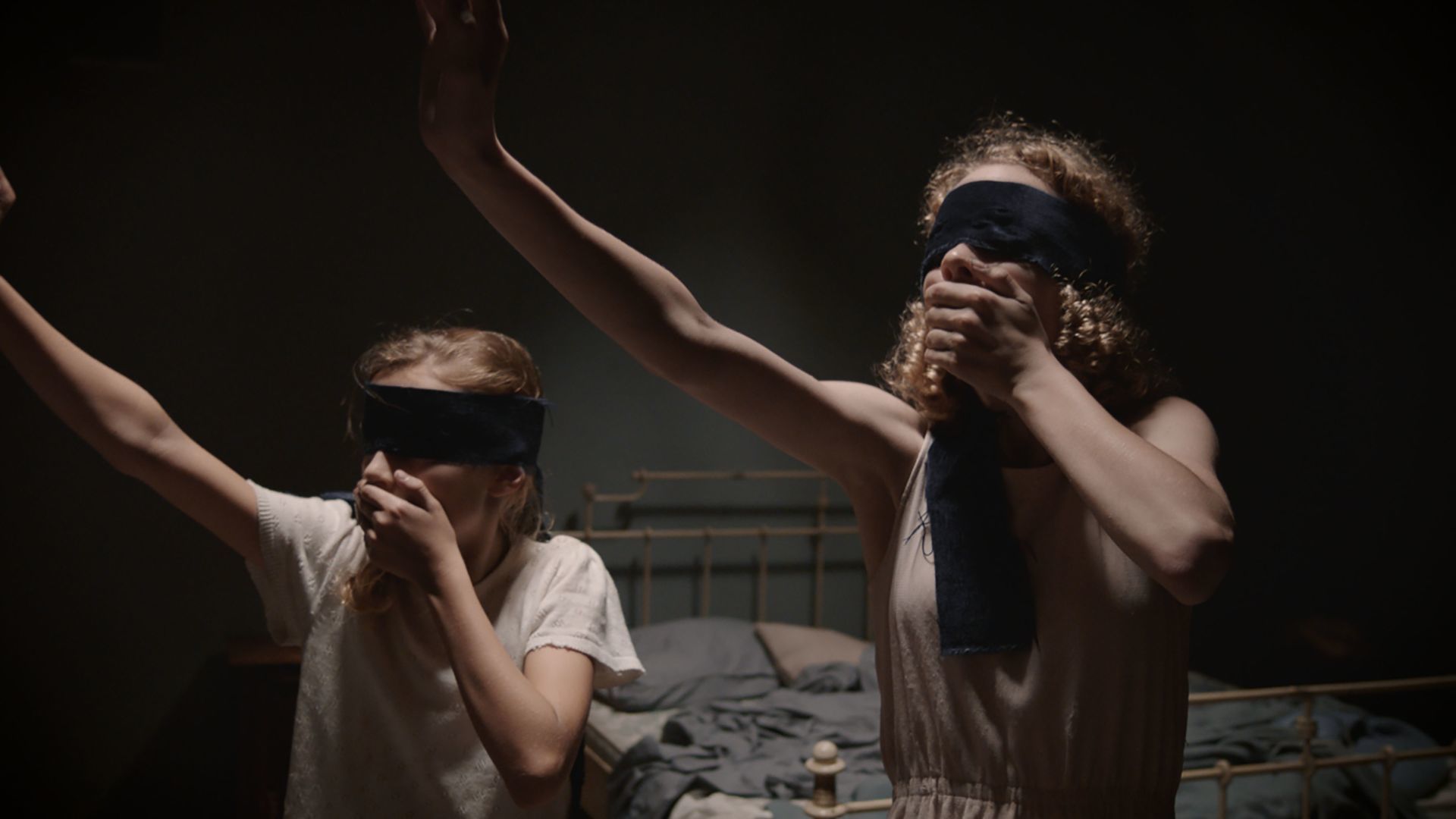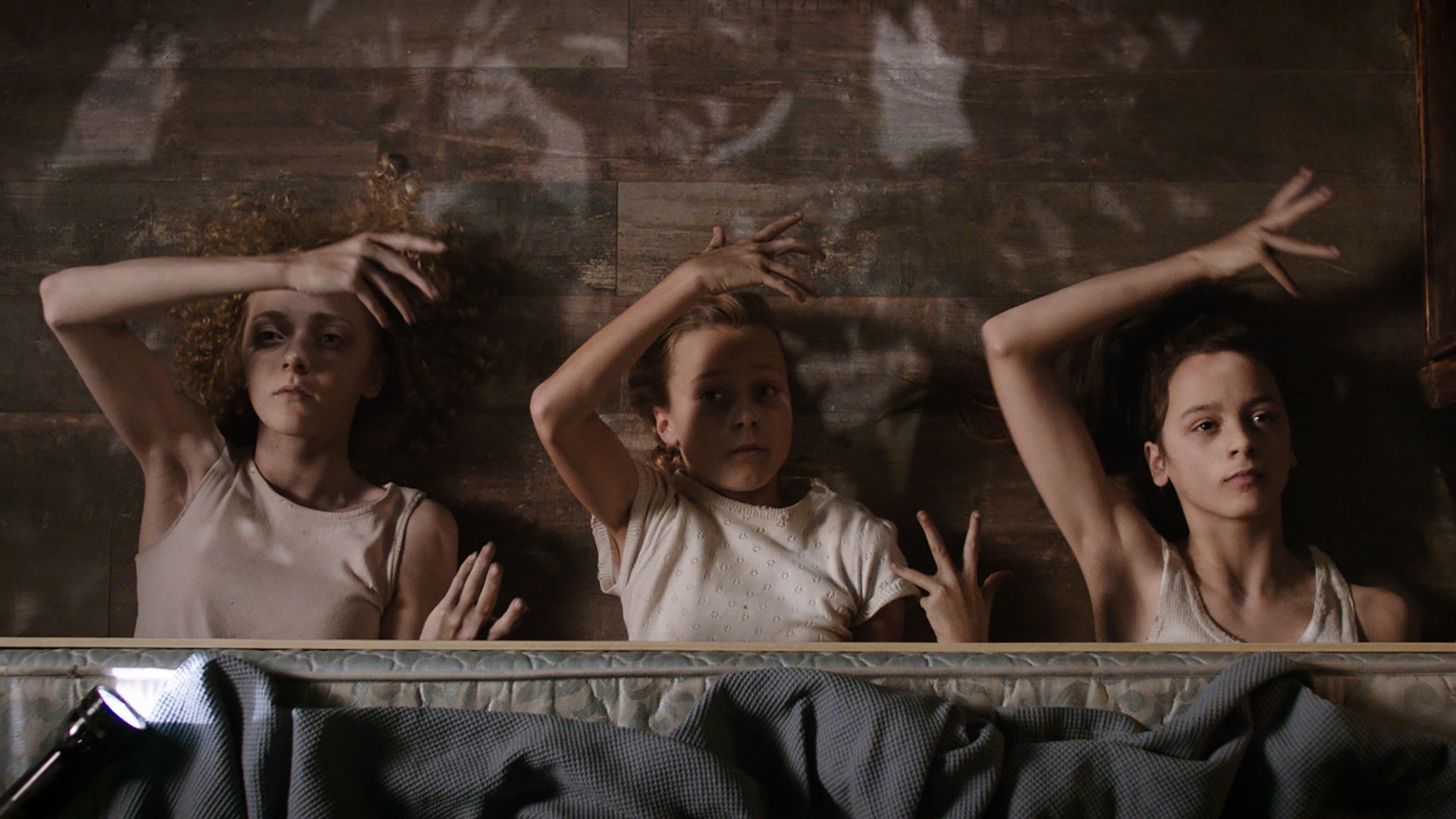

Case Study: Sisters
Three sisters grow up in a broken home. They are at each other’s mercy and survive as long as they are together. But is their loving connection strong enough to endure their gloomy surroundings?
Geplaatst op 26 mei 2019

Three sisters grow up in a broken home. They are at each other’s mercy and survive as long as they are together. But is their loving connection strong enough to endure their gloomy surroundings?
Geplaatst op 26 mei 2019Sisters is a special experiemental short film which uses dance elements instead of dialogue to convey meaning. The director of Sisters, Daphne Lucker, as well as Thomas Mataheru, who is one of the producers, talk about the production and the challenge to translate the script into movements that have the same narrative power as words. This month, Thomas Mataheru will take Sisters to the Short Film Corner of the Cannes Film Festival 2019.
"If this was a dialogue, what would they say?"
Daphne: "Very early on in the process we had the idea that we wanted to make a dance film. At that point we still didn’t know what the film’s subject would be. We talked about which relationships would be interesting to represent in a combination of dance and film. We thought family would be a good one and we talked a lot about our families. Rosita [the script writer] has two sisters and I have one. The connection we have with them is really special and strong. We were especially interested in these connections when a familiar situation gets quite unsafe and how sisters need this strong connection to survive their surroundings."

Daphne: "Rosita Wolkers wrote the script. At first she composed a
prose instead of a scriptformat. Later on in the process we put it in a
script form because it was easier to communicate to the rest of the
crew. Of course Rosita is not a choreographer but she wrote some
movements in the script to communicate our idea to the world. The real
choreography had to be written by our choreographer, Emma Evelein. Some
of the written words were hard for her to translate to movement and we
had to make some changes. At that point Rosita already worked on another
script but fortunately she had written some other scenes that
originally didn’t make it into our script. However, in the rehearsals I
brought them back to see if it was a better scene for Emma to work
with."
"During shooting the script did not change. We had a great coach, Boudewijn Koolen who consulted us during the whole production and also the coaches from the Film Academy were a great help. Rosita wrote a big part of the script in the summer. I would say she had around two months to write the script which is pretty quick. I still admire her for doing it so fast!"

Daphne: "When we almost had a final version of the script I sent it to the composer to compose some music to work with in the rehearsals. But we figured we needed more time to develop the music that fits to our story. So I made a playlist with music to work with for Emma in the rehearsals. Casper van Oort, the cameraman was there several times. We already tried some shots while the girls were dancing. After the rehearsals we would sit together with this material and we analyzed every movement. If this was a dialogue, what would they say? That is how we made up our shots. We saw the movements as a dialogue."
Daphne: "We abided quite strictly by the shot list during the shoot, but of course there was enough room to play around and make changes. Still, while shooting the script did not change. A day before shooting we did an open rehearsal in the studio so every crew-member could see what was going to happen the next days. It was also a nice way for the girls to get used to the location and the people being around while shooting. This is their first film. I think the shooting days went pretty smooth. Of course you have your insecurities as a director and you want it to be great. The biggest challenge on set was how to cope with the energy levels of the girls. Doing a scene again and again is pretty tiering when you have to dance all the time. This was getting better when we worked more with stand-ins during the process."

Thomas: "The Film Academy gives you a pretty good position to start with a production. The crew is a combination of students from multiple disciplines. The school invest a minimal budget in your film and there is a session of pitches to public broadcasters. The EO adopted our plan and helped us both financially and with coaching in pre and post production. It was also very interesting to see that the teaser that we made at the end of the summer really made visible to other people what we were planning to do. After showing the teaser at pitches, people would come to us themselves to help us with our project. From that moment on, people started to realize that Sisters would become a striking graduation film."
Thomas: "We always knew that we wanted to shoot this film as a studio production at the Film Academy. That meant that we had to shoot very soon, as the first graduation film that year. Since our actresses, who we found through Instagram, where still young, we had to shorten our shooting days. Furthermore we could only film during weekends and school holidays. All of this resulted in seven shooting days divided over a period of two weeks."
Thomas: "There are always things that go wrong at a production! You can make so many plans, but things will always go differently from what you expected. But since it was a studio shoot, it was the most controllable situation that we could possibly create. Of course there was the fire alarm, and the shorter shooting days, and the lunch was brought in late so that it was cold and nobody liked it… But overall, we were well prepared. As Daphne already mentioned, we had this open rehearsal which gave the entire crew a good insight of what we could expect during the shoot. In the end, we only added one extra shooting day."

Thomas: "I did my internship at Filmmore the year before, so it was already agreed that they would help us on our graduation film. After the in-house edit at the Film Academy, we adapted the film at Filmmore and graded it with Erik Demeris. We then combined it with the Dolby 5.1 export that was also made in-house at the Film Academy and then Filmmore made a DCP for us."
Thomas: "We are very happy that Hidde de Vries, also an alumni of the Film Academy, helps us with our festival distribution. He has founded Kaptein Kort, specializing in distribution for short films. Sisters is doing so well at the festivals. We also created a special website where all the screenings are up-to-date."
Thomas: "Make sure that you find a subject that is close to you. Make other people enthusiastic with a plan that must be made by you and gain energy from their enthusiasm. It might seem to be a long journey, all the financing and pre-production, but in the end, when you get to see your film at its premiere for the first time with a filled screening room, that is magic… That is the moment when you realize that it is all worth it."